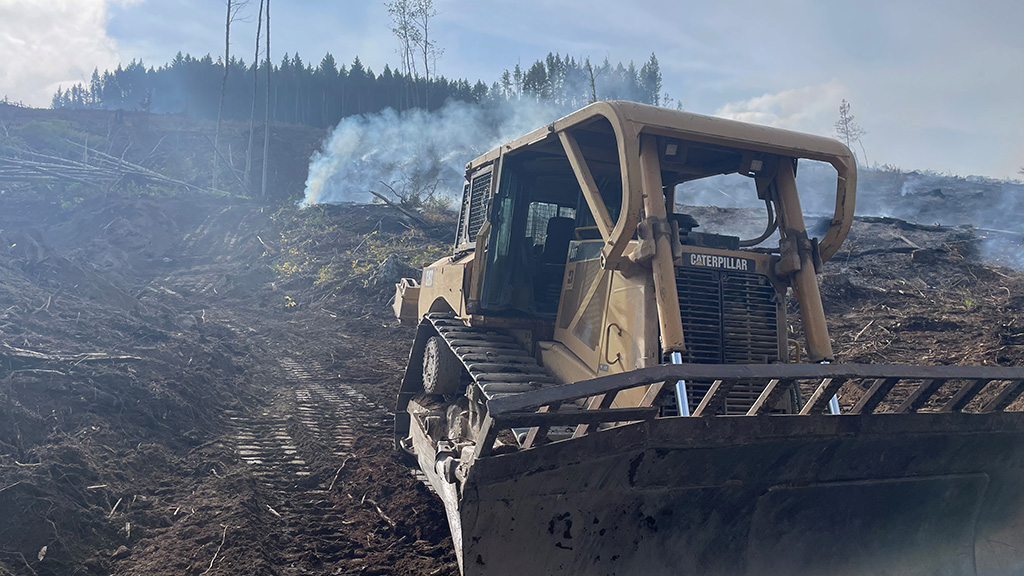A forestry expert says it’s time to take a holistic approach to wildfire management as British Columbia gears up for another season.
British Columbia Institute of Technology instructor Justin Perry recently addressed a TedX Abbotsford conference with a presentation titled Holistic Wildfire Management: Seeing Fire Through Multiple Lenses which calls for a balanced strategy when attempting to control wildfires.
“I’m not saying we don’t need firefighters. We absolutely still need our wild land firefighting crews (who are) certainly a key component,” Perry said. “Holistic wildfire management is just about assessing where we can make improvements to the way we’re currently doing things. It’s about trying to mitigate this crisis we’re facing.”
Perry said historically when fire emerged it was immediately dealt with on an ad-hoc basis but that has resulted in unanticipated knock-on effects.
“In B.C. we had a policy of exclusive fire suppression, so we put out nearly every fire that we could for 100 years. That has created problems because we have eliminated fire from the landscape. Then those fires that would have come in and burned off and created less severe fires have created (instead) a build up of fuel. Now there’s climate change and conditions for disastrous fires to happen,” he said.
He added BC Wildfire is trying to change that policy and has adopted a modified fire response where the fire is monitored and “they try to let it burn for ecological benefit. If it gets close to a community or it starts to spread too intensely obviously they put it out, but BC Wildfire already has response types that help mimic a natural fire.”
Fireproofing needs to ‘brace for the worst’
Perry added buildings in the past were not constructed to withstand the conditions we now face since climate change was not a known factor, but going forward it must be considered when fireproofing.
“We have to brace for the worst and be more proactive when we do have these windows, when it can be proper to burn or to do vegetation treatments,” he said.
Perry also drew on his Metis heritage and pointed out that culturally fire can be seen as a healing property, such as when used in sweat lodges.
“Fire can be seen as something healing or cleansing,” he said. “My elders taught me some of the cultural and healing powers of fire and we can apply the exact same thing on the landscape if we’re careful.”
He added wildfire permit areas in B.C. also mandate metal roofs and the use of fire-resistant construction materials in areas where there is greater wildfire risk, adding building roofs that haven’t been fireproofed are the key reason fires spread from building to building as was seen in the wild.
Quick solutions to prevent wildfire spread
However, not everyone has the resources, time or money to modify their buildings, he said, which leaves vegetation management as a way to mitigate wildfires while still maintaining balance.
“Simply reducing or modifying the vegetation you have around your house, removing vegetation adjacent to your property. There are more sophisticated strategies like allowing for more deciduous species in cut blocks that are closer to communities. We still absolutely need shrubs and pollinators and deciduous trees. We don’t want to get rid of all vegetation, because then things are just going to dry out,” Perry said.
He explained there are already resources available for residential and other construction sectors to mitigate wildfires. He cited the British Columbia FireSmart site as a key information source for those looking to adapt current buildings or use appropriate construction materials and prescribedfire.ca which explains prescribed fire and cultural burning practices.
You can watch Perry’s Tedx talk in full below.



Recent Comments
comments for this post are closed